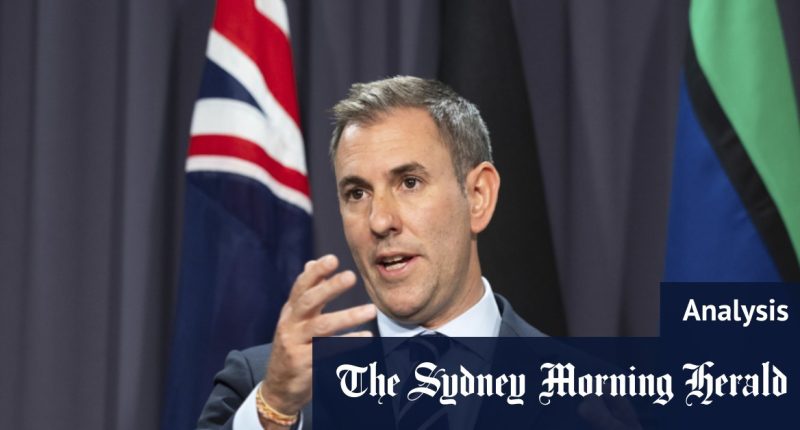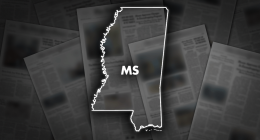“And nobody is saying that this will involve solely public investment.
“Public investment, important and substantial, is a key – to help unlock the hundreds of billions of private capital we’ll need to deploy.”
Loading
These comments prepare the ground for one of the pivotal arguments about the budget due on May 14: how the government balances its big talk about new spending with its vow to manage inflation.
The Coalition’s shadow treasurer, Angus Taylor, is already goading Chalmers about the scale of the spending.
“We’ve had lots of signals from him that he wants this to be a big-spending budget,” Taylor said on Monday.
“And the test for this budget is: is it going to put downward pressure on prices? Now, we’ve said the key here is to make sure your economy grows faster than your spending, contain your growth in spending, making sure your economy is growing faster than that.”
The Coalition argument is easy to predict: it will add up the new expenditure on May 14, frame Labor as the party of big government and tell voters that the outlays will push inflation higher.
In fact, the latest retail figures do not show demand is running hot. If anything, the pipes are freezing over. That makes it harder for Taylor to blame the government for working against the Reserve Bank in cooling inflation and, eventually, bringing down interest rates.
And the “made in Australia” plan is about loans to be offered to companies over many years, not spending that hits the economy in a rapid burst.
Loading
There are good reasons to question the way Labor is risking taxpayer funds. It has pledged $840 million in loans to a lithium mine backed by billionaire Gina Rinehart, promised $1 billion for companies to make solar panels and, on Monday, announced $940 million for tech company PsiQuantum.
The funds will be invested in stages, so the exposure is reduced if the projects fail, but nobody can be sure when or if taxpayers will get their money back.
Chalmers says this is about national security as well as economic security. He will use his speech to the Lowy Institute on Wednesday to warn that Australia cannot survive the “churn and change” in the global economy by simply waiting for others to invest in new industries.
“If we stand still, the world will move past us,” he says in the draft of the speech.
This is unashamedly about government intervention and action. It is squarely on message with Prime Minister Anthony Albanese’s “made in Australia” agenda. But it acknowledges this cannot be done in a way that eliminates all risk.
Cut through the noise of federal politics with news, views and expert analysis. Subscribers can sign up to our weekly Inside Politics newsletter.
Also Read More: World News | Entertainment News | Celebrity News










